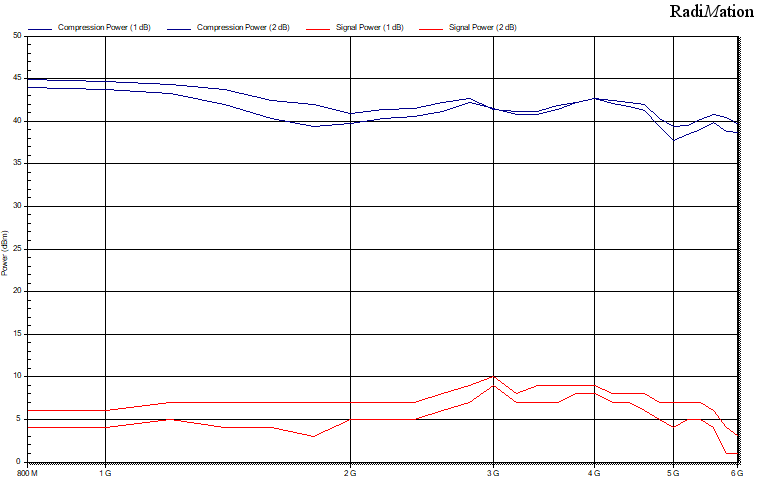RadiMation Application Note 126: Difference between revisions
Jump to navigation
Jump to search
(Created page with "= How to do a gain compression check in Radimation= Test to determine when the amplifier is going in compression. We raise the power at the input level of the amplifier. Whil...") |
|||
| Line 4: | Line 4: | ||
If the amplifier is saturating the output is not raising anymore in a linear fashion. | If the amplifier is saturating the output is not raising anymore in a linear fashion. | ||
You can define different compression points in the test. Below is a test with 2 compression points at 1 dB and at 2 dB. | You can define different compression points in the test. Below is a test with 2 compression points at 1 dB and at 2 dB. In this picture there is more saturation happening when the line of the output power is dropping below 45 dBm. | ||
[[File:PowerCompressie.png]] | |||
==Running a EUT compression gain test== | |||
* Open or make a new EUT. | |||
* Go to calibration/eut calibration/gain compression | |||
* Open a existing test or make a new test | |||
== Frequency range == | == Frequency range == | ||
Revision as of 09:48, 26 November 2019
How to do a gain compression check in Radimation[edit]
Test to determine when the amplifier is going in compression. We raise the power at the input level of the amplifier. While we are increasing the power going into the amplifier we measure the output of the amplifier. If the amplifier is saturating the output is not raising anymore in a linear fashion.
You can define different compression points in the test. Below is a test with 2 compression points at 1 dB and at 2 dB. In this picture there is more saturation happening when the line of the output power is dropping below 45 dBm.
Running a EUT compression gain test[edit]
- Open or make a new EUT.
- Go to calibration/eut calibration/gain compression
- Open a existing test or make a new test
